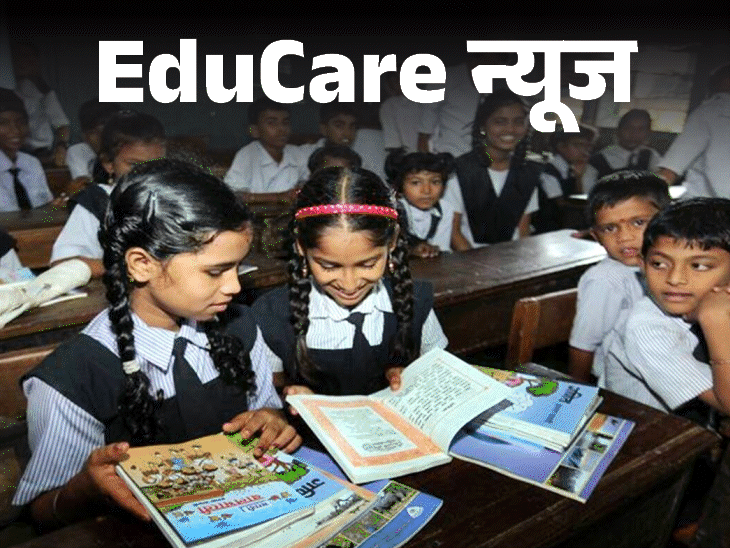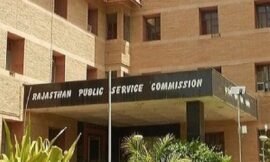4 days ago
- Copy link

Maharashtra has become the first state in the country to implement a three -language policy. Now it has been necessary to read Hindi here for children from 1 to 5th class. This decision will apply to all Marathi and English medium schools of the state. Keeping in mind the new Karikulum of the National Education Policy (NEP) 2020, a three -language policy has been implemented in Maharashtra for these classes.
The state school education department made this announcement on Wednesday. The Education Department said that NEP 2020 suggestions regarding school education are planned to be implemented in several stages. Along with this, the schools which are following any medium apart from Marathi and English are already following the three language policy.
This is because it is mandatory to teach English and Marathi in these schools and the language of communication is being taught here as the third language. While English and Marathi Medium Schools were still teaching only two languages.
Plan to apply 5+3+3+4 model also
With this, the 5+3+3+4 model of NEP recommended in Maharashtra will be implemented. The first phase of this new structure will be applied to the new academic year i.e. 2025-26 to the first class.

The three language policy will also be implemented by phase-wise. From the coming academic year, students of the first class in the state will read three languages.
According to Karikulam's new framework, Maharashtra State Board Text Books will be based on NCERT's Curriculum. However, the local context of Maharashtra will be added to the books of Social Science and Languages. Accordingly, the text books of the first class will be published by Balbharati. Balbharati is the State Book Bureau of the State.

Opposition to three language policy in Tamil Nadu
Under the National Education Policy, there is a fierce fierce in the Central Government and the Tamil Nadu government on the rule of teaching 3 languages in schools. On 16 February 2025, Tamil Nadu CM M.K. Stalin accused the Center of blackmailing and threatening for not implementing 3 language policy. Also accused of imposing Hindi language and not issuing funds. In response, Union Education Minister Dharmendra Pradhan said on February 17, 2025 that the Central Government is fully committed to implementing the National Education Policy (NEP), 2020.
Under NEP 2020, students will have to learn 3 languages but no language has been made mandatory. States and schools have the freedom to decide which 3 languages they want to teach.
It has been recommended to study in primary classes (class 1 to 5) in mother tongue or local language. At the same time, it is mandatory to study 3 languages in middle classes (class 6 to 10). It will be English or a modern Indian language in a non-Hindi speaking state. If the second and 12th school wants to give foreign language as an alternative.
2 language formula is applicable in Tamil Nadu
Tamil Nadu already has a 2 language formula in force. The first language is Tamil (mother tongue/state language) and second language English (for official and international communication). The Tamil Nadu government says that this model is successful and there is no need to put additional language burden on students.

The Tamil Nadu government argues that this protest is necessary to preserve their language and culture. Students should be excellent in English and Tamil and the third language burden is unnecessary. (File photo of Tamil Nadu Chief Minister MK Stalin)
The Tamil Nadu government says that the new education policy is an attempt by the Central Government to impose Hindi 3 language formula. There is no need to change the 2 language formula of the state. Saying this, both the Chief Minister of the state and the Minister of Education have rejected 3 language formula of NEP 2020.
History of opposition Hindi in Tamil Nadu 85 years old
During the British rule in 1937, there was an attempt to make Hindi compulsory in schools in Madras Presidency (now Tamil Nadu), which had to face widespread opposition. This movement was led by Dravidar Kazhagam and later Dravida Munnetra Kazhagam i.e. DMK. The protest was so strong that Hindi had to be removed from schools in 1940.
Similarly, when the Central Government planned to make Hindi the only official language in the country, there were mass protests in Tamil Nadu. Many students lost their lives during these demonstrations and the movement shook the entire state. Subsequently, the central government had to retreat and English was maintained as a co-official language with Hindi.
New education policy brought on 2020 after 34 years
The new education policy was approved by the Government of India on July 29, 2020 on 2020 (NEP 2020). This is a major change in India's education policy after 34 years. The previous policy was made in 1986 (which was updated in 1992). Its purpose is to mold India's education system according to the needs of the 21st century, so that students not only pass the exam, but are equipped with practical knowledge and skills.
This time the Center has set a target of 2030 to implement the new education policy. Since education is the subject of concurrent list in the Constitution, which has the right to both the state and the central government. Therefore, it is not necessary that the state governments apply it completely. Whenever there is a conflict situation, both sides have been suggested to solve it with consensus.
,
Read more similar news …
NTA answered Jee Mens's wrong questions: 21 out of 90 questions were accused of wrong

The National Testing Agency i.e. NTA has responded to allegations of students, parents and coaching experts. Read full news …




